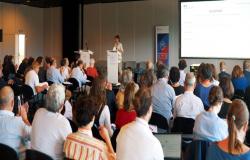Skip to content

Declining purchasing power: cultural spending in danger?
- 47% of French people report a drop in their purchasing power. This situation today concerns one in two residents of a rural or autonomous rural area (50%). It affects more the middle and lower classes, who are more vulnerable. Respectively 49% and 53% mention a drop in their purchasing power.
- To compensate for this drop in purchasing power, the French people concerned are giving up their cultural purchases: 79% say they have been forced to reduce their cultural spending, or plan to do so. Even more worrying, more than one in four say they will drastically reduce their culture budget, or anticipate it (28%). The cultural spending of middle categories is significantly more affected. In fact, 83% have reduced them or plan to do so, and more than a third drastically.
Higher shipping costs, tfocus on second-hand books: a barrier to buying books and reading
- Two thirds of French people arefavorable to the proposal to introduce a tax on books sold second-hand (67%). For 49% of French people who buy second-hand books, this would result in a drop in their reading, due to not being able to buy books.
- 62% of French people buying books believe that the increase in shipping costs introduced in October 2023 affects their purchasing power. 44% of book buyers say this leads them to reduce their purchases and therefore read less. The most modest categories are the most affected (51% of modest categories, 59% of poor categories, compared to 28% of wealthy categories).
Increase in shipping costs: hypermarkets emerge as winners, to the detriment of local bookstores
- When they make more at physical points of sale to avoid shipping costs, readers prefer firstly the hyper/supermarkets, large brands or press houses (70%), compared to independent bookstores (26%). This is particularly the case in rural areas (75% vs. 70%), with residents living further from independent bookstores.
- These trips are mainly made via a carbon-intensive individual means of transport (car or scooter), for 59% of respondents. At the same time, 41% say they favor a “soft” mode of transport (walking, public transport, etc.). Here again, a strong geographical divide is felt. Rural French people depend much more on their car, and more than 8 in 10 take the car (81% in rural areas, 78% in autonomous rural areas).
Document to download
The results
Collection methodology
The survey was conducted among a sample of 12,005 people, representative of the French population aged 18 and over. Within this sample, here are the details of the interviews carried out in each region: Grand Est: 1,000 interviews; New Aquitaine: 1,000 interviews; Auvergne Rhône-Alpes: 1,000 interviews; – Burgundy Franche-Comté: 1,000 interviews; Brittany: 1,000 interviews; Center Val de Loire: 1,002 interviews; Ile-de-France: 1,000 interviews; Occitanie: 1,000 interviews; Hauts-de-France: 1,000 interviews; Normandy: 1,003 interviews; Pays de la Loire: 1,000 interviews; Provence-Alpes-Côte-d’Azur & Corsica: 1,000 interviews.
The representativeness of the sample was ensured by the quota method (sex, age, profession of the person interviewed) after stratification by region and category of agglomeration. The interviews were carried out by self-administered online questionnaire from July 30 to August 27, 2024.
Your contacts


Flora Baumlin Directrice d’Etudes, Corporate & Work Experience
Enora LANOE-DANEL Head of Studies, Opinion & Business Strategies


Document to download
The results
Collection methodology
The survey was conducted among a sample of 12,005 people, representative of the French population aged 18 and over. Within this sample, here are the details of the interviews carried out in each region: Grand Est: 1,000 interviews; New Aquitaine: 1,000 interviews; Auvergne Rhône-Alpes: 1,000 interviews; – Burgundy Franche-Comté: 1,000 interviews; Brittany: 1,000 interviews; Center Val de Loire: 1,002 interviews; Ile-de-France: 1,000 interviews; Occitanie: 1,000 interviews; Hauts-de-France: 1,000 interviews; Normandy: 1,003 interviews; Pays de la Loire: 1,000 interviews; Provence-Alpes-Côte-d’Azur & Corsica: 1,000 interviews.
The representativeness of the sample was ensured by the quota method (sex, age, profession of the person interviewed) after stratification by region and category of agglomeration. The interviews were carried out by self-administered online questionnaire from July 30 to August 27, 2024.
publications associated
To download this document, please complete the form below:
Inscription newsletter
Find all the latest news from IFOP – our featured publications, not to be missed and many others… – in our monthly newsletter sent at the end of the month.





